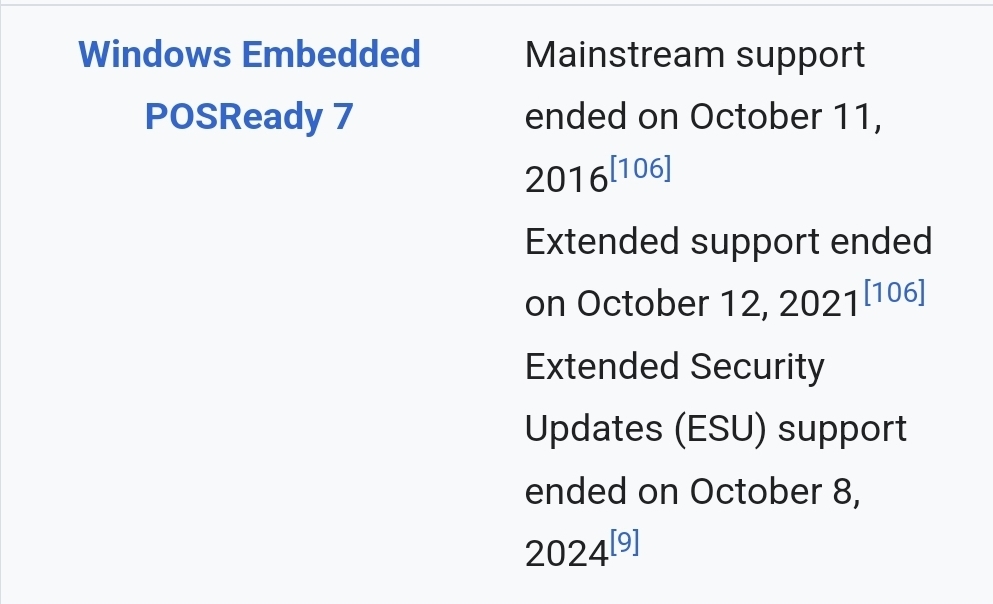this post was submitted on 08 Oct 2024
673 points (99.7% liked)
Technology
65378 readers
4648 users here now
This is a most excellent place for technology news and articles.
Our Rules
- Follow the lemmy.world rules.
- Only tech related content.
- Be excellent to each other!
- Mod approved content bots can post up to 10 articles per day.
- Threads asking for personal tech support may be deleted.
- Politics threads may be removed.
- No memes allowed as posts, OK to post as comments.
- Only approved bots from the list below, to ask if your bot can be added please contact us.
- Check for duplicates before posting, duplicates may be removed
- Accounts 7 days and younger will have their posts automatically removed.
Approved Bots
founded 2 years ago
MODERATORS
you are viewing a single comment's thread
view the rest of the comments
view the rest of the comments

I think a large part of it is how most of the machines that could run 7 can run everything after 7 (maybe just need more RAM), but many many MANY machines running XP couldn’t move forward because the CPU or the integrated graphics just couldn’t take it.
My hard drive couldn't take all the background shit in 10, it would literally stutter scanning my files. When I tried to disable the anti-virus and it told me "I'm sorry, Dave. I’m afraid I can’t do that"
I’m not trying to judge, but you installed and ran a modern operating system on a spinning platter drive?
I had to switch to SSDs in 2016 because macOS was dragging hard on a Pro notebook.
My old laptop doesn't have an M.2 slot
It ran fast enough in windows 8 and linux. It only became unbearable on windows 10
And XP was 32 bit only, it was really an updated version of Win2k, which was really rock solid.
Which kind of supports your point.
XP did have a 64-bit version, but at the time 64-bit wasn't widely used.